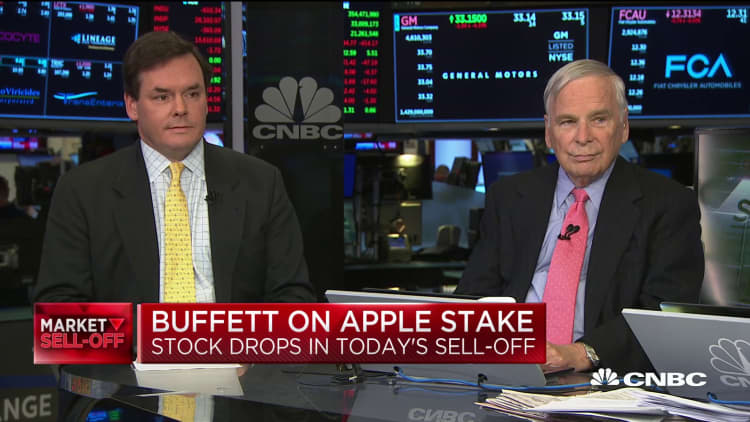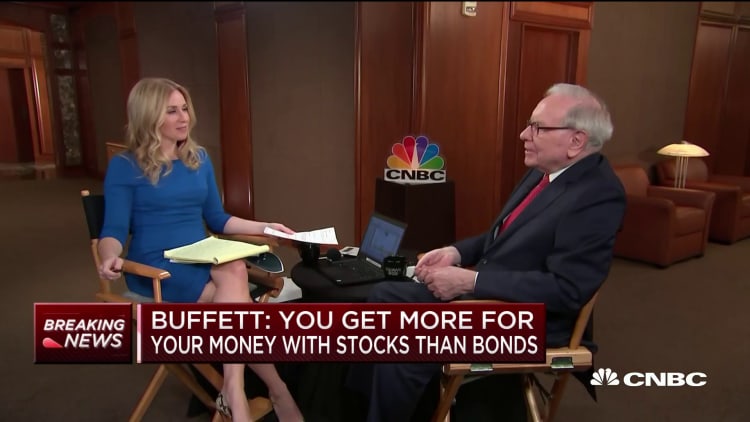
The coronavirus is front and center as the cause of Monday's dramatic stock market sell-off, but investors have more on their minds.
One issue that may not be getting enough credit for the uneasiness on Wall Street is the troubling slide in bond market yields. The 30-year bond is at historic lows, while the benchmark 10-year Treasury is at levels not seen since the Brexit unrest in the summer of 2016.
While that usually is a telltale sign that the market is pricing in low economic growth, the current dynamic is adding some twists that have investors unnerved.
"I don't think this would be nearly as dramatic this morning were it not for the bond market. This might have more to do with the bond market pushing on an all-time low," said Jim Paulsen, chief investment strategist at The Leuthold Group. "It opens up a whole new can of worms of whether bond yields can go negative in the United States."

The bond moves came amid a sharp sell-off in the stock market, with major indexes seeing losses of 2.5% or more in Monday morning trading.
Negative nominal yields are prevalent across much of Europe and in Japan, involving about $11 trillion of global sovereign debt. The entire German yield curve traded in negative territory Monday.
The Fed's fear
In the U.S., Federal Reserve officials have expressed doubt that government debt ever could see below-zero yields, a phenomenon that happens when bonds are priced so high above par that investors holding to duration receive below the principal amount at maturity.
But as investors keep buying bonds and inflation expectations dim, the prospect of negative yields is rising. While borrowers benefit in that situation, banks suffer, and negative yields have done little to boost overall growth in the countries where they prevail.
Paulsen, though, said the low rates in the U.S. may not be signaling low growth expectations but rather the belief that inflation will stay down for an extended duration.

"The message in the bond market may not be that much different in stocks," he said. "Bond yields are down this year, but credit spreads have not widened. That tells me the bond market is saying inflation is down but growth is OK."
Still, the low yields are playing into fears expressed by Federal Reserve officials worried about inflation.
Central bankers have been talking up inflation, trying to reach a 2% goal so they can keep short-term rates high enough to provide policy room in the case of a downturn. Markets, though, are looking for more rate cuts; futures traders on Monday were pricing in a 56% chance of a reduction by April, according to the CME's FedWatch tool.
Stocks are 'vulnerable'
The bond market trends also represent a tricky calculus for stock market investors.
Normally, when stock prices are rising bond prices fall and yields rise as investors demand more of a premium for safe haven fixed income. However, that hasn't been the case lately, with the correlation between bond prices and stocks at a four-year high, according to Lisa Shalett, chief investment officer at Morgan Stanley Wealth Management. Shalett said this is a case where "this time has been different."
"As rates have gone down, equity investors have redoubled their focus on how low rates will drive valuations higher, which is risky," she said in a note for clients. "We see stock prices as vulnerable, so if interest rates were to back up suddenly, the diversification that bonds usually provide could fail."
For investors, Paulsen said it will be critical to watch spreads, or the difference between bonds of similar maturities but different credit quality. Widening spreads indicate greater market fear.
"If they stay in the range they've been in the last year, I think things will hold together," he said.

Correction: Major indexes saw losses of 2.5% or more in Monday morning trading. An earlier version misstated the day.


